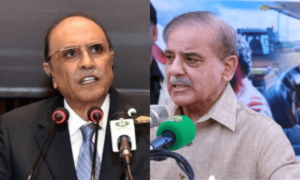ISLAMABAD: The Senate Standing Committee on Interior on Tuesday passed three bills to increase the punishment for offences related to human smuggling.
One of the bills proposed amendments to the Prevention of Trafficking in Persons Act, 2018, to include organised beggary as an offence.
The amendments proposed enhancing the prison sentence for human trafficking from seven years to ten years with a fine of Rs1 million.
The proposed sentence for crimes committed against children and women is 14 years in jail and a fine of up to Rs2m.
Bodies of four Pakistanis killed in Morocco boat tragedy to arrive today
The statement of objects and reasons stated that the amendments had been enacted for “effective measures to prevent and combat the trafficking in persons, especially women and children”, and to promote and facilitate national and international cooperation on these offences.
It added that stricter sentences would create a deterrence against the offence.
As per the bill, Pakistani embassies in the Gulf countries, Iraq and Malaysia have complained that some citizens who come to these countries for religious and personal visits start begging there.
They have urged the authorities to take stern action against those involved in begging and the gangs behind them.
The agents and gangs involved in this practice easily dodge prosecution as beggary is not a crime in any law entrusted to FIA.
The Senate committee also passed amendments to the Prevention of Smuggling of Migrants Act, 2018, which would increase the punishment for human smuggling from five years to up to 10 years’ imprisonment.
The fine has been increased from Rs1m to up to Rs10m.
The amendments also increased the punishment for harbouring a foreign national illegally in Pakistan from one to three years to two to five years and doubled the upper limit of fine to Rs2m.
The committee also approved a bill seeking to amend the Emigration Ordinance, 1979, to do away with the court’s powers to release the accused after imposing a minor fine. The amendment proposed mandatory imprisonment with fine.
Interior Secretary Khurram Agha highlighted the rising cases of human trafficking, stressing the importance of stricter laws. He stated that the proposed legislation included measures to ensure stronger convictions and harsher punishments for offenders.
During the Senate committee’s meeting, FIA officials confirmed that 10 Pakistanis who had gone to Saudi Arabia on Umrah visas had been deported after they were found to be involved in beggary.
Repatriation of bodies
The bodies of four Pakistani nationals, who died in a boat tragedy near Morocco while attempting to reach Europe will arrive in the country today (Wednesday).
They were among the dozens who died on the boat carrying at least 86 migrants, including 66 Pakistanis.
Over 40 Pakistanis were reportedly murdered by African human traffickers in the Atlantic Ocean. However, local authorities could only recover the bodies of 13 victims, sources said.
As per diplomatic sources, the 13 victims have been identified as Sufyan Ali, son of Javed Iqbal; Sajjad Ali, son of Mohammad Nawaz; Raees Afzal, son of Mohammad Afzal; Qasnain Haider, son of Mohammad Banaras; Mohammad Waqas, son of Sanaullah; Mohammad Akram, son of Ghulam Rasool; Mohammad Arsalan Khan, son of Ramzan Khan; Hamid Shabbir, son of Ghulam Shabbir; Qaiser Iqbal, son of Moammad Iqbal; Danish Rehman, son of Mohammad Nawaz; Mohammad Sajawal, son of Rahim Din; Shahzad Ahmed, son of Wilayat Hussain; and Ehtisham, son of Tariq Mahmood.
The mortal remains of four of them — Mr Shabbir, Mr Khan, Mr Iqbal and Mr Sajjad — will arrive via Saudia flight SV726 at the Islamabad International Airport.
The victims were identified following an extensive verification process, for which their photos and fingerprints were sent to Nadra, according to sources.
Earlier, the return of 22 Pakistanis, who survived the tragedy, was completed on Saturday.
The survivors, hailing from different areas of Pakistan, returned to the country in batches.
Mohammad Asghar in Rawalpindi also contributed to this report
Published in Dawn, February 5th, 2025
- Desk Reporthttps://foresightmags.com/author/admin/










